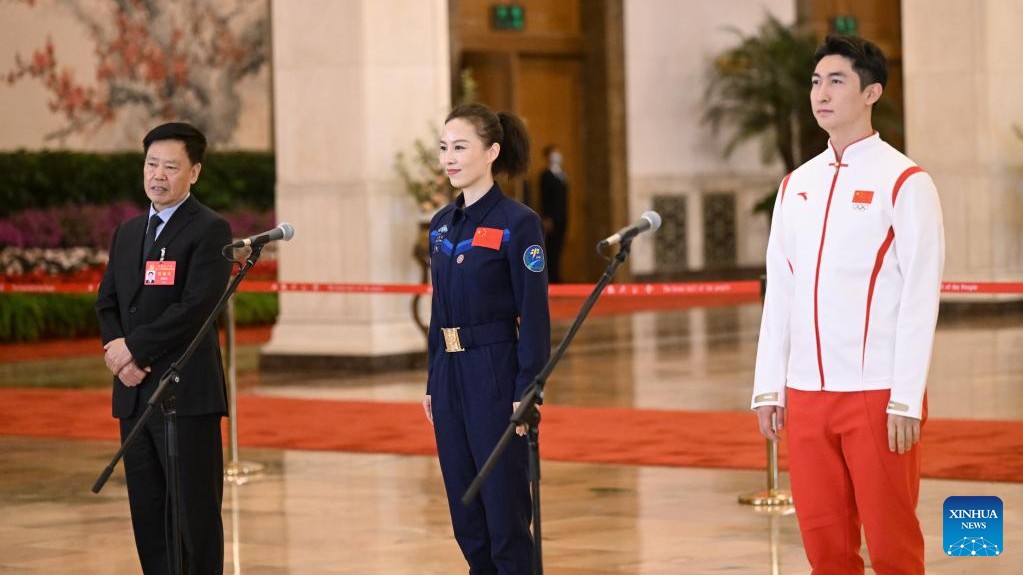In March 2019, Li Guodong, Party chief of Karaoy, a village in Altay, northern Xinjiang Uygur autonomous region, found many women occupied with nothing but doing basic housework, and many of them asked Li if he could help them find work in the village.
"Most of them are housewives, and except for the daily housework, they have plenty of time to do something and make some money to increase their family income. But they have one requirement -- the place of work has to be in the neighborhood," said Li.
At that time, Li remembered Bulbul Xaburkay, a Kazak embroiderer he met in nearby Burqin county. Bulbul has been dedicated to the business of embroidery for decades and she owns a factory in the county that manufactures traditional Kazak embroidered goods.
Kazak embroidery is commonly used on carpets and tapestries found in ethnic yurts and on clothing, as well as other decorations and items used in everyday life.
"I inherited the craft from my family and it is a type of artistic embroidery. I have been designing, making and promoting the craft for more than 20 years," said Bulbul.
"I agreed without any hesitation when Li asked me to set up a workshop in Karaoy, not only because the craft may help the villagers to earn more money, but also because it is a way to protect the craft by teaching more people to embroider," she added.
The local government built a workshop in the center of the village and named Bulbul as the manager. Soon after the workshop was built, the government posted the recruitment information at the paths of the village.
"It was not long before many villagers came to apply for jobs, and most of them were from poor families, so we decided to organize training courses to teach them how to embroider," said Li.
After one month of training and instruction by Bulbul, 44 villagers learned simple embroidery patterns and started to work in the workshop.
"As Kazak women, they are very talented, so it didn't take me much time to teach them. Now, eight of the best workers have full-time contracts with the workshop, so they can earn over 3,000 yuan ($430) a month," said Bulbul.
"The rest of the 36 workers depend on the order quantity. If there are more orders, they can earn more. In the recent two months, we had some orders from Urumqi, the region's capital, and Kazakhstan, so most of them can earn more than 2,000 yuan," she added.
The 40-year-old Kulman Badish is one of the eight full-time workers in the workshop, and she is assigned to make tablecloths and clothing with Kazak ethnic symbols on them.
"My husband is working in Burqin county, which means I have to stay in the village in order to take care of the older members of our family. So, when Bulbul opened the workshop here, I was the first woman who came here to apply for a job," said Kulman.
From Monday to Friday, Kulman works eight hours a day, and she can have a monthly salary of 3,200 yuan. Kulman said the job is tailored to her, not only because her house is next to the workshop, but also because Kulman feels she is keeping her ethnic heritage alive with this craft she learned.
"I am enjoying my work now and I hope the products can be sold in many places, so that more people may get to know traditional Kazak embroidery," she said.










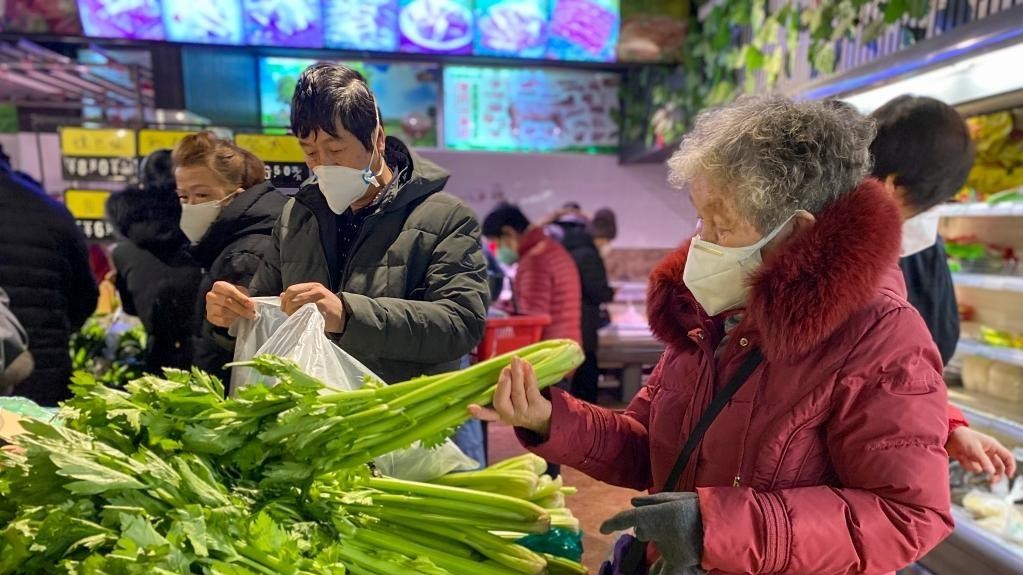



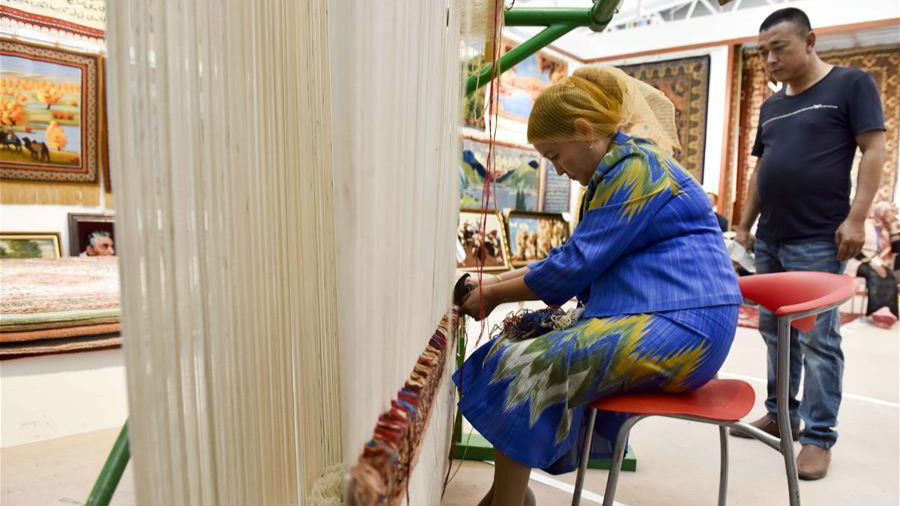
.jpg)





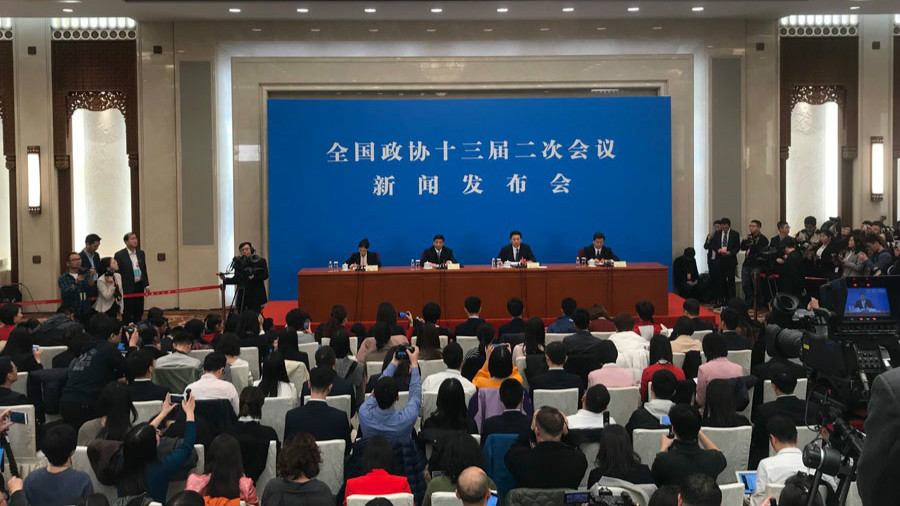
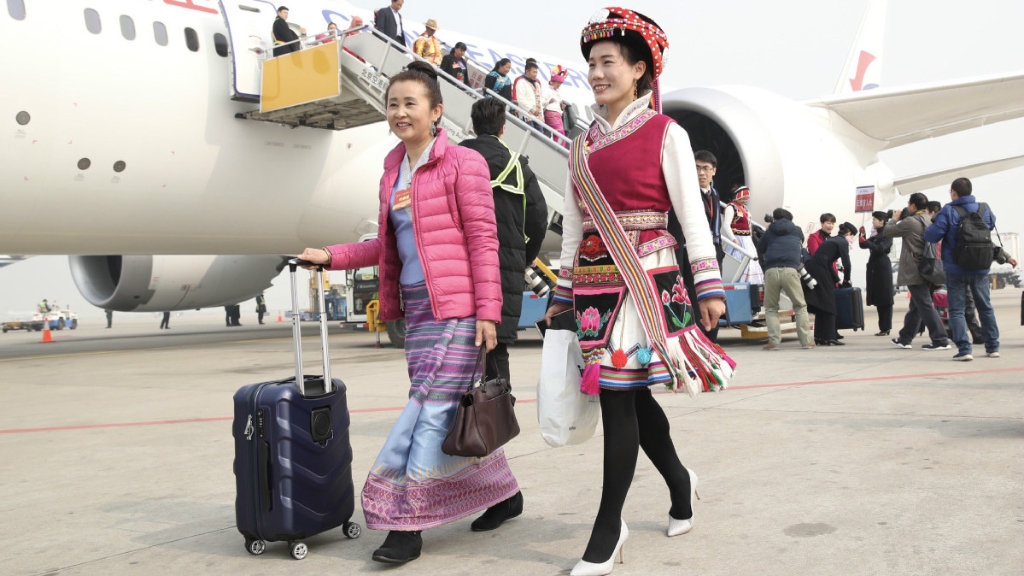


.jpg)

